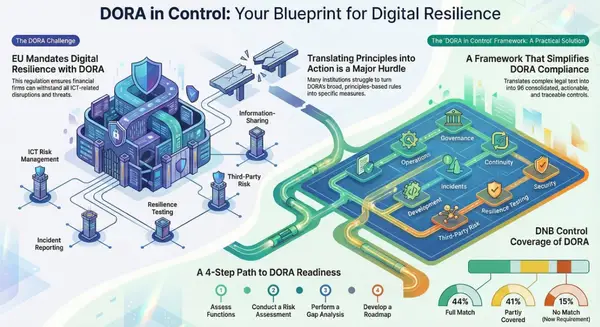Blockchain Compliance Audits & Regulatory Fines 2025: Complete Guide

Introduction
The blockchain and cryptocurrency landscape in 2025 has reached a critical juncture where regulatory compliance is no longer optional—it's essential for survival. Regulatory penalties for global financial institutions skyrocketed 417% in the first half of 2025, totaling $1.23 billion compared to $238.6 million in the same period of 2024. This dramatic increase underscores the urgent need for comprehensive blockchain compliance audits and proactive risk management strategies.
As digital assets continue to mainstream adoption, regulators worldwide are implementing stricter oversight mechanisms and imposing substantial fines for non-compliance. From 2019 to 2024, the SEC's average fine increased to $426 million in 2024, representing a 12,466.37% growth from 2018, with blockchain and cryptocurrency companies bearing the brunt of these enforcement actions.
The Evolving Landscape of Blockchain Compliance Audits
Multi-Layered Security Approaches
In 2025, security firms are implementing multi-layer security checks that go beyond traditional code reviews, including automated scans for identifying common vulnerabilities, manual code reviews by experienced auditors, penetration testing, attack simulations, and fuzz testing. This comprehensive approach reflects the increasing sophistication of both blockchain technologies and the threats they face.
The audit landscape has evolved dramatically from simple code reviews to comprehensive assessments that examine:
- Cryptographic Practices: Detailed analysis of consensus mechanisms, hashing algorithms, digital signatures, encryption protocols, and key management systems
- Architecture Reviews: Thorough examination from initial design to final deployment, including servers, networks, and data integration
- Smart Contract Security: Meticulous manual reviews to identify subtle flaws and ensure compliance with secure development protocols
- Cross-Chain Security: With the rise of multi-chain applications and Layer 2 solutions, audits must now cover security risks across different chains, including vulnerabilities in bridging mechanisms and interoperability flaws
AI-Enhanced Audit Processes
Empirical evidence demonstrates that distributed ledger technology enhances audit efficacy through automated transaction authentication, with PwC achieving a 90% temporal reduction in reconciliation protocols, and machine learning-powered anomaly detection algorithms enabling comprehensive audit sampling and continuous monitoring capabilities.
Major auditing firms are leveraging artificial intelligence to revolutionize blockchain audits:
- EY's Blockchain Analyzer: Utilizes zero-knowledge proof (ZKP) technology to verify transaction compliance without revealing sensitive data
- Deloitte's ChainFinance: Automates processing of letters of credit and trade finance through smart contract verification
- PwC's Reconciliation Protocols: Achieves 90% time reduction in traditional reconciliation processes
Regulatory Fines Landscape in 2025
Cryptocurrency Exchange Penalties
The cryptocurrency exchange sector has faced unprecedented regulatory scrutiny in 2025. The most significant penalty was issued by the US Department of Justice to cryptocurrency exchange OKX, which paid more than $504 million after pleading guilty to failing to maintain an effective AML program.
Other notable enforcement actions include:
- Binance Settlement: In 2023, Binance agreed to a $4.3 billion resolution with U.S. authorities after pleading guilty to violating federal charges related to AML and sanctions breaches
- TD Bank: Fined over $3 billion by U.S. authorities for long-standing AML compliance failures, including enabling drug trafficking operations
Global Enforcement Trends
By January 2025, the cumulative total of GDPR fines reached approximately €5.88 billion, while global regulators issued more than $3.5 billion in AML-related penalties against banks, representing over 65% of 2025's total enforcement actions.
Key enforcement patterns include:
- Expanding Scope: Digital assets firms increasingly in the crosshairs, reflecting a global trend of increased regulatory scrutiny around sanctions compliance
- Geographic Distribution: US, UK, and Australian authorities leading enforcement efforts
- Penalty Severity: Fines determined by level of negligence, volume of transactions, duration of violations, and repeat offenses
Critical Compliance Areas for 2025
Anti-Money Laundering (AML) and Know Your Customer (KYC)
Even if your blockchain project isn't all about money, you'll need these safeguards in place, with RegTech solutions streamlining KYC checks and helping flag suspicious activity. The implementation of robust AML/KYC procedures has become non-negotiable for blockchain businesses.
Key requirements include:
- Customer due diligence (CDD) procedures
- Ongoing monitoring and suspicious activity reporting (SARs)
- Enhanced due diligence for high-risk customers
- Transaction monitoring systems with real-time alerts
Securities Law Compliance
Whether your blockchain tokens or assets count as securities is a legal minefield, with different countries having different rules, adding to the uncertainty. The regulatory classification of digital assets continues to be a major compliance challenge.
Recent developments include:
- SEC's Project Crypto: Chair Paul Atkins announced the SEC's "Project Crypto" as part of President Trump's executive order aiming to make America the crypto capital of the world
- Staking Clarifications: The SEC published statements clarifying that certain liquid staking activities do not involve securities requiring registration
Cross-Border Regulatory Challenges
Blockchains don't care about borders, creating a massive legal headache about whose laws apply if participants are worldwide. This jurisdictional complexity requires sophisticated compliance frameworks.
Regional compliance considerations:
- European Union: MiCA regulation providing comprehensive legal framework
- United States: State-by-state money transmission licensing requirements
- UAE: VARA oversight of Virtual Asset Service Providers with strict AML and CTF standards
- Asia-Pacific: Diverse regulatory approaches across jurisdictions
Best Practices for Blockchain Compliance Audits
Selecting the Right Audit Partner
When choosing an auditing company, consider their methodology alignment with industry best practices, industry-specific expertise, and ability to provide customized services for unique blockchain projects.
Critical selection criteria include:
- Track Record: QuillAudits boasts expertise with 1,400+ audits and over $30 billion worth of digital assets secured
- Specialization: Experience with DeFi protocols, GameFi projects, and cross-chain applications
- Regulatory Knowledge: Understanding of applicable securities, commodities, and financial services laws
- Technical Expertise: Proficiency in smart contract security, cryptographic validation, and penetration testing
Implementing Comprehensive Audit Frameworks
Conducting a blockchain security audit provides numerous advantages, including enhanced security, increased trust among stakeholders, regulatory compliance, risk management, and performance optimization.
Essential audit components:
- Pre-Audit Preparation: Documentation review, environment setup, and scope definition
- Multi-Vector Testing: Advanced attack vector analysis, extensive testing (static, dynamic, fuzz, stress), and in-depth code reviews
- Remediation Planning: Clear vulnerability documentation with actionable remediation measures
- Follow-up Assessments: Post-implementation verification and ongoing monitoring
Leveraging Technology for Compliance
Regulatory authorities are increasingly utilizing artificial intelligence and data analytics to monitor and detect suspicious activities in real-time, requiring financial institutions to adopt these tools to remain compliant.
Technology solutions include:
- Automated Compliance Monitoring: Real-time transaction screening and alert systems
- RegTech Integration: RegTech solutions can streamline KYC checks and help flag suspicious activity, saving time and minimizing mistakes
- Blockchain Analytics: Transaction tracing and risk scoring capabilities
- Smart Contract Automation: Self-executing compliance checks and reporting
Industry-Specific Compliance Considerations
Decentralized Finance (DeFi) Protocols
For non-compliant DeFi projects within SEC jurisdiction, the agency has effective enforcement mechanisms, including recent settlements with purported DeFi platforms for failing to register offerings that raised $30 million.
DeFi compliance challenges include:
- Securities registration requirements for governance tokens
- Investment advisor registration for yield farming protocols
- Commodity derivatives regulation for synthetic assets
- Consumer protection measures for retail-facing applications
Non-Fungible Tokens (NFTs)
NFTs present unique challenges for audit, risk, and compliance professionals, as the value can be highly subjective and difficult to determine, with ownership and authenticity verification leading to fraud and money laundering risks.
NFT compliance requirements:
- Intellectual property rights verification
- Anti-money laundering controls for high-value transactions
- Consumer protection disclosures
- Tax reporting obligations
Cross-Chain and Layer 2 Solutions
Cross-chain protocols introduce new security challenges, such as vulnerabilities in bridging mechanisms and interoperability flaws, requiring audits to incorporate testing for potential exploits when assets move between blockchains.
Specialized audit considerations:
- Bridge security assessments
- Consensus mechanism validation across chains
- Liquidity and oracle manipulation risks
- State transition verification for Layer 2 networks
Cost-Benefit Analysis of Compliance Investment
Financial Impact of Non-Compliance
The financial consequences of inadequate blockchain compliance extend far beyond regulatory fines:
- Direct Penalties: SEC fines ranging from under $1 million to over $4.68 billion against Terraform Labs in 2024
- Reputational Damage: Loss of customer trust and market credibility
- Operational Disruption: Forced suspension of services pending compliance remediation
- Legal Costs: Extensive litigation and settlement expenses
Return on Compliance Investment
Investing in quality audits can save projects from costly exploits, legal issues, and reputational damage, with prioritizing security over cost-cutting measures being a strategic decision that enhances project credibility and stability.
Compliance benefits include:
- Regulatory Approval: Faster licensing and approval processes
- Investor Confidence: Thorough audits demonstrate commitment to security and transparency, building confidence among potential investors, partners, and users
- Market Access: Ability to operate in regulated markets and partner with traditional financial institutions
- Operational Efficiency: Streamlined processes and reduced manual oversight requirements
Future Outlook and Regulatory Developments
Emerging Regulatory Frameworks
The upcoming EU AI Act, effective August 2, 2025, is expected to introduce further fines of up to €35 million or 7% of global turnover for AI-related violations, indicating continued regulatory expansion into emerging technologies.
Anticipated developments include:
- Global Coordination: Increased cooperation between international regulators
- Technology-Specific Rules: Tailored regulations for DeFi, NFTs, and Layer 2 solutions
- Environmental Standards: ESG compliance requirements for blockchain networks
- Consumer Protection: Enhanced disclosure and suitability requirements
Industry Adaptation Strategies
Many say the global crypto ecosystem is being held back by blockchain compliance issues, but 2025 may provide the regulatory clarity crypto startups and entrepreneurs need to thrive.
Strategic adaptation approaches:
- Proactive Compliance: Building compliance into product design from inception
- Regulatory Sandboxes: Participating in regulatory pilot programs
- Industry Standards: Contributing to self-regulatory organization initiatives
- Cross-Border Planning: Structuring operations to optimize regulatory compliance across jurisdictions
Conclusion
The blockchain compliance audit landscape in 2025 represents both a challenge and an opportunity for industry participants. Smart contract audits are no longer optional—they are a necessity in 2025, with evolving regulations and advanced security techniques making audits more thorough than ever.
Organizations that proactively invest in comprehensive compliance programs and regular security audits will be best positioned to navigate the increasingly complex regulatory environment while capitalizing on the growing acceptance of blockchain technology in traditional finance and enterprise applications.
The key to success lies in treating compliance not as a burden, but as a competitive advantage that builds trust, enables market access, and creates sustainable business value. As regulatory frameworks continue to mature, blockchain businesses that establish robust compliance foundations today will be the leaders of tomorrow's digital economy.
Related Articles
For more insights on blockchain compliance and regulatory trends, explore these related articles:
- Emerging Trends in Data Privacy and Their Impact on Compliance
- The Role of Blockchain in Ensuring Data Privacy
- Blockchain and Compliance: A Perfect Match?
Stay updated with the latest compliance developments by subscribing to our newsletter and following ComplianceHub.wiki for expert insights and regulatory updates.





